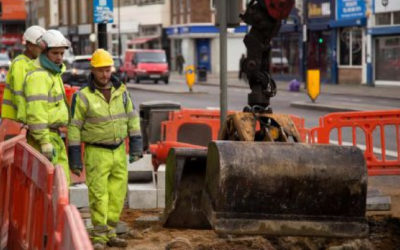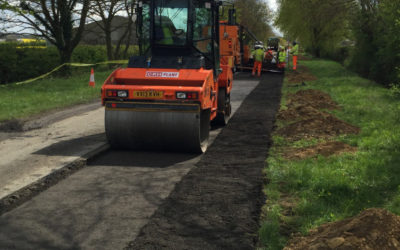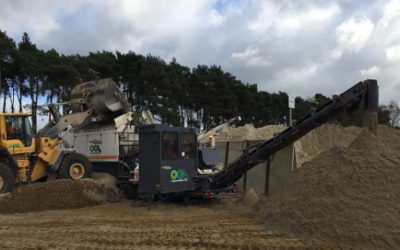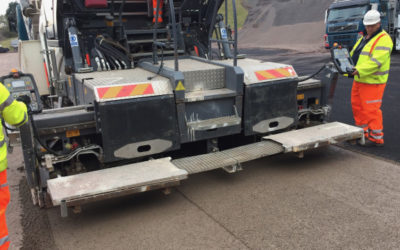After much anticipation and unprecedented levels of attention, COP26 ended with little fanfare. Depending on your vantage point, the conference was either a failure, nothing more than a PR exercise, a source of incremental change or a resounding success.

For me, the positives outweigh the negatives and there was good cause for optimism. When you consider that every step of progress requires politics to be aligned, money to be assigned to support, and multiple stakeholders to agree, the fact that pledges have been made feels like meaningful progress.
Specifically, these four points gave me cause for cheer.
- Post COP26 most of the planet is now covered by NetZero commitments and there is an agreement to meet again next year with a renewed focus
- Despite much toil, there is now text (the Glasgow Climate Pact) about the coal era coming to an end (and more people endorsed it than I thought would do), and motion to now rapidly deploy renewable energy generators.
- There are now powerful commitments to the redirection of finance and extra pledges from some of the big hitters in order to gild confidence and support
- The majority of Nationally Determined Contributions (NDC)’s were strengthened and important steps were taken to benchmark, score and implement the driving down of emissions beyond the big tickets of energy and carbon.
Perhaps the largest victory of COP26 is that the profile the event had across the world was significantly wider, more vocal, and more widely discussed than ever before. The knock-on for this awareness is that increasingly the voters–who ultimately make the politics of all this possible–are becoming more informed, more engaged, and more passionate about getting the right result.
Green Shoots and Green Apples
A fortnight ago I attended the Green Apple Environment Awards in Whitehall with representatives from Hampshire County Council and Milestone Infrastructure regarding our Micheldever project. We were fortunate enough to pick up an award for our efforts in recycling highway materials waste in the county. While there I got a great opportunity to meet fellow award winners their views on the climate and work being around sustainability and carbon reduction post COP26.
The upshot was that outside of some commitments across the globe, Glasgow was also a platform for launching innovative sectoral partnerships and new funding to support these aims, and that the real goal to come out of COP26 was to reshape every sector of the economy at the scale necessary to deliver a net-zero future. There has been a tangible shift in mindset around climate post COP26. I think it served a great purpose in galvanising the planet to focus on what we really need to do and the fact that the time is now, not soon, now.
I also learnt more facts about the climate risks we are facing. I hadn’t fully grasped the exponentiality around the likely outcomes if we fail to keep 1.5c alive. This is the goal of driving short term reduction of emissions to limit temperature rises to 1.5C, mobilising both public and private finance, and supporting communities to adapt to climate impacts.
I learnt that at 1.5C science-based modelling predicts that the ice caps could completely disappear 1 year in 100. A very scary thought in itself, but one we hope to be able to adapt around as a race. Scarier still, and why I think about exponentiality, is that at 2C that frequency increases to 1 in 10 years! With the current blend of NDCs we are tracking at 2.4C to 2.8C – clearly far from what is needed but still better than COP21’s 2.8C-3.7C.
When the UK took on the COP26 mantle, in partnership with Italy, nearly two years ago, only 30% of the world was covered by net-zero targets. This figure is now at around 90%. Over the same period, 154 Parties have submitted new national targets, representing 80% of global emissions.
On the world’s roads, the transition to zero-emission vehicles is gathering pace, with some of the largest car manufacturers working together to make all new car sales zero-emission by 2040 and by 2035 in leading markets. Countries and cities are following suit with ambitious petrol and diesel car phaseout dates.

The Time Is Now. No Really, Now.
Current policies would leave us on a path to a devastating temperature rise. But work done by independent experts Climate Action Tracker shows that the full implementation of the fresh collective commitments could hold temperature rise to 1.8C.
The International Energy Agency (IEA) says in a recent report that governments need to cut emissions 5 times faster by 2030 if we are to have a chance of making good on limiting warming to 1.5C.
Even with the action committed both during and before COP26, communities around the world will continue to feel the impact of our changing planet. Despite significant headway on several fronts, national climate and financing commitments still fell far short of what is needed to come to grips with the climate challenge.
Discussions around climate change and wider sustainability factors still need focus and a sense of urgency. COP26 spoke to us about adaptation. To adapt we need to be agile and OCL is committed to continuing its focus on making highly agile low carbon, circular, high-quality and low-risk solutions readily available to our customers. As a sector, we can’t expect to effect change unless we do things differently. OCL’s mantra is to do things differently and this is where we all, should try harder.
OCL Regeneration is a leader in materials recycling, with an emerging set of locations that offer carbon-neutral aggregate recycling, helping county councils and construction clients reach sustainability goals. More details about how we help with carbon reduction here: https://www.oclregeneration.co.uk/carbon-reduction












